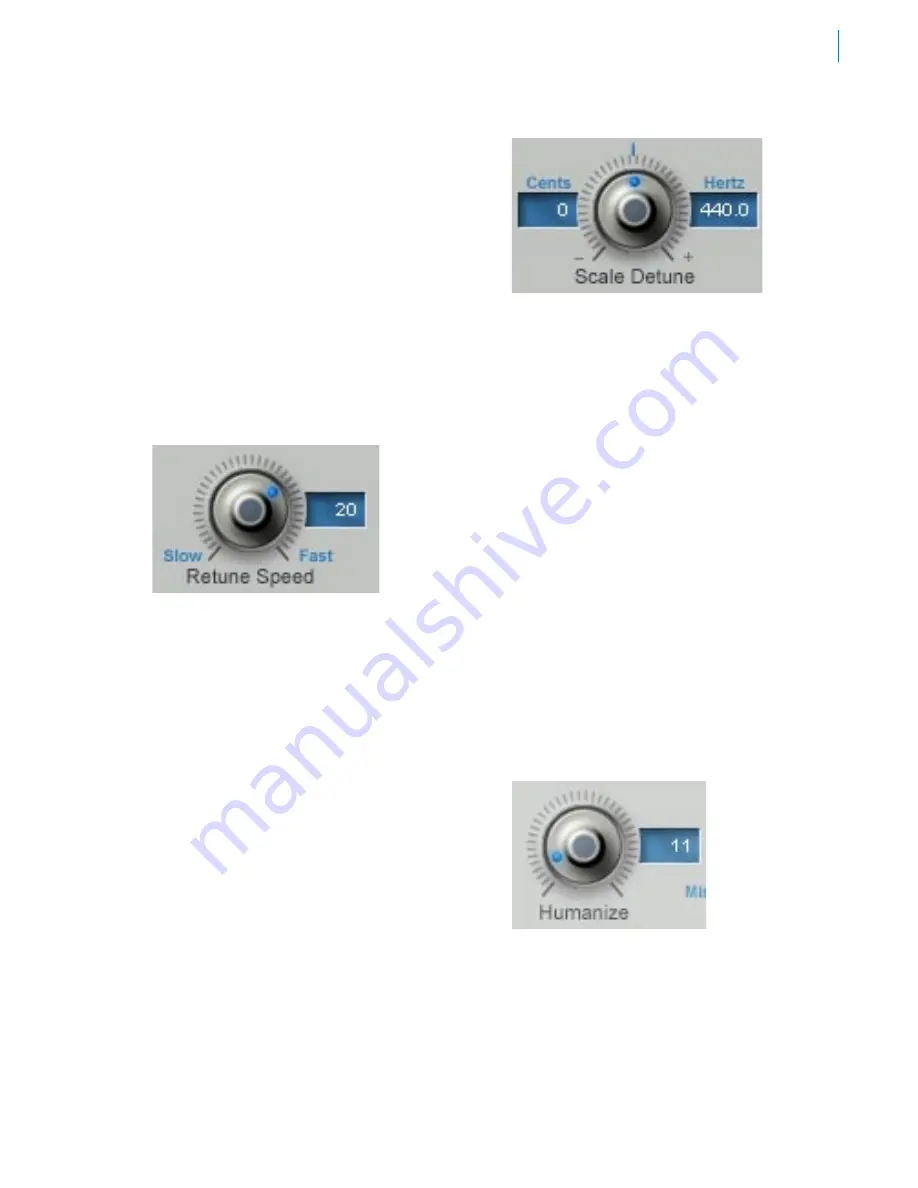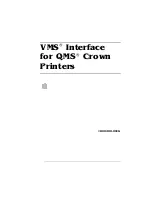
5
When this function is ”On,“ Auto-Tune 5
uses the impressively named Stochastic
Optimal Linear Estimation Theory to attempt
to recognize vibrato and differentiate between
it and intended note changes. Our testing has
shown that it works a lot of the time — but not
always (it depends a great deal on the actual
performance). When it works, Auto-Tune 5
ignores the wide vibrato as far as target note
selection is concerned. When it doesn’t, it
works pretty much the same way it would
work if the function were ”Off.”
The default state of this control is Off. When
you’ve got a vibrato problem, try turning it on
and see if it helps.
Retune Speed
Retune controls how rapidly the pitch
correction is applied to the incoming sound.
The units are milliseconds. A value of zero will
cause instantaneous changes from one tone
to another and will completely suppress a
vibrato (note that any related volume changes
will remain). Values from 10 to 50 are typical
for vocals (unless you’re going for the now-
infamous “Cher effect,” in which case use
0). Larger values let through more vibrato and
other interpretative pitch gestures but also
slow down how rapidly pitch corrections are
made. Although the above suggestions can
be used as starting points, finding the correct
Retune setting for a particular performance is
largely a matter of trial-and-error and depends
on such attributes as song tempo, note
duration and vocal style, among others. As
always, let you ears be your guide.
The default Retune value is 20. Double-clicking
or Command (Mac)/Control (PC) clicking the
Retune knob will reset it to that value.
Scale Detune
The Detune parameter allows you to change
the pitch standard of Auto-Tune 5 from
the default A = 440Hz. The value is set in
cents (100 cents = 1 semitone). The range
of adjustment is from -100 to +100 cents.
For convenience, the detune amount is also
displayed in Hertz relative to A440.
The Detune function can be used to tune
a vocal performance to some irreparably
out-of-tune instrument (a piano or organ, for
example), or to allow correction to other than
the conventional 440Hz standard.
If you have a tone that you want to use as the
pitch standard, select that tone and play it in
a loop. Adjust Scale Detune until the Change
meter reads zero. (You may be required to
use the Edit Scale Display to remove adjacent
notes so that Auto-Tune 5 doesn’t tune to the
wrong note.)
The default Scale Detune setting is 0 cents.
Double-clicking or Command (Mac)/Control
(PC) clicking the Scale Detune knob will reset
it to that value.
Humanize
One of the
criticisms
occasionally (if,
we feel, unfairly)
leveled at pitch
correction is
that it results in
performances
that are “too perfect.” Frankly, it’s been our
experience that for the skillful engineer, Auto-
Tune has always offered the means to perform
its magic in a way that makes it virtually
impossible for the listener to hear that it has
been used (without, of course, comparing the
result to the original performance).
Summary of Contents for Auto-Tune 5
Page 1: ...Owner s Manual Auto Tune5 PitchCorrectingPlug in...
Page 6: ...vi Chapter 5 New Features Quick Start Guide 51 Chapter 6 Creative Applications 57...
Page 8: ......
Page 20: ...14...
Page 46: ...40...
Page 64: ...58...
















































